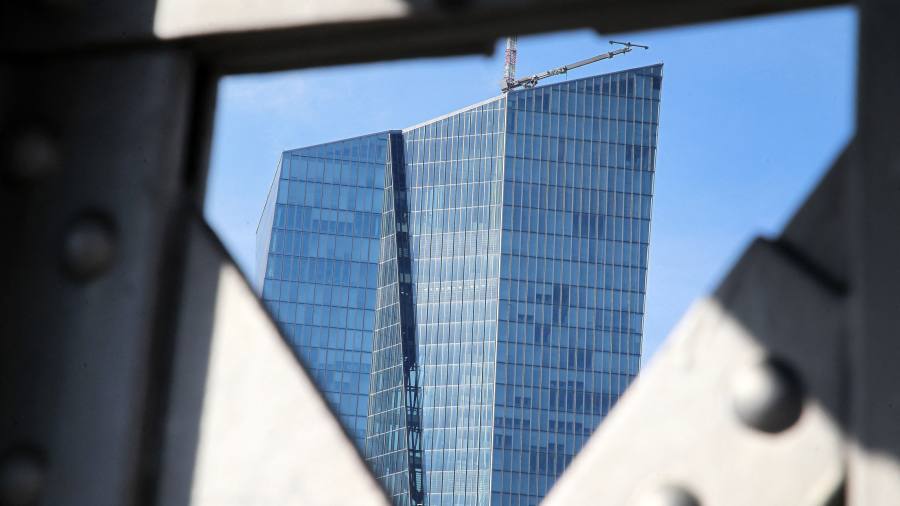The European Central Bank has warned that eurozone banks are at risk of mounting bad loans and a funding squeeze due to rising interest rates, higher inflation and a likely recession.
Supervisors at the ECB plan more frequent inspections of bank offices and will carry out more “targeted reviews” of the largest lenders in the 19-country single currency zone to push them to address these growing risks, the regulator said on Monday.
Publishing its priorities for banking supervision next year, the ECB said lending to energy-intensive sectors, residential mortgages and commercial property was particularly vulnerable to the deteriorating economic environment.
Some banks could also struggle to replace the cheap funding the ECB has provided to help the sector through the coronavirus pandemic, which is now being withdrawn as the central bank tightens monetary policy to tackle high inflation, it said.
“While the banking sector has thus far proven to be resilient to the fallout from the war in Ukraine, downside risks have increased as a result,” said Kerstin af Jochnick, an ECB supervisory board member, and Mario Quagliariello, its director of supervisory strategy and risk.
“In the near term, we are concerned about the repercussions of the macroeconomic environment and financial market dynamics for asset quality and banks’ funding,” they said in a blog published on Monday.
The increased pressure from the ECB over banks’ preparation for a potential increase in bad loans and funding squeeze could increase tensions with executives in the sector, several of whom have already complained about its heavy handed approach to supervision.
The banking sector’s performance has picked up this year, as rising interest rates have boosted profit margins on loans while government measures to support companies and households with high energy costs have helped to keep defaults low.
However, the ECB warned that the good times looked unlikely to last due to a probable increase in bad loans and rising funding costs for banks.
The central bank is expected to raise interest rates on Thursday by at least 0.5 percentage points to 2 per cent, which would be the highest level since the 2008/9 financial crisis, while most economists expect the eurozone to enter a recession this winter.
“Higher interest rates and a sluggish or possibly recessionary growth outlook may challenge the debt-servicing capacity of borrowers going forward,” the ECB officials said in their blog. “This may particularly be the case for highly indebted households and corporates.”
The central bank said a recent supervisory review had identified shortcomings in how banks control their risks, “especially in relation to loan origination and monitoring, classification of distressed borrowers and provisioning frameworks”.
Some banks have also become “more vulnerable to market disturbances” because of a heavy reliance on ultra-cheap funding from the ECB itself, the central bank warned.
Last month, the ECB changed the terms of its targeted longer-term lending operations, under which it lent €2.1tn to banks at a rate as low as minus 1 per cent to encourage them not to cut their lending during the pandemic.
The TLTRO rate was raised to the ECB’s deposit rate from last month and since then banks have repaid nearly €800bn of their loans under the scheme ahead of schedule.
The central bank said some banks would need to “further diversify their funding sources and replace part of their central bank funding with more expensive and possibly shorter-term alternatives, which will put pressure on their prudential ratios and profitability”.







More Stories
Inside the MOHELA meltdown: Student loans provider responsible for servicing 8 MILLION accounts under fire as borrowers see repayments double, hidden interest
Finmid raises $24.7M to help SMBs access loans through platforms like Wolt
Are you overpaying for your car loan?